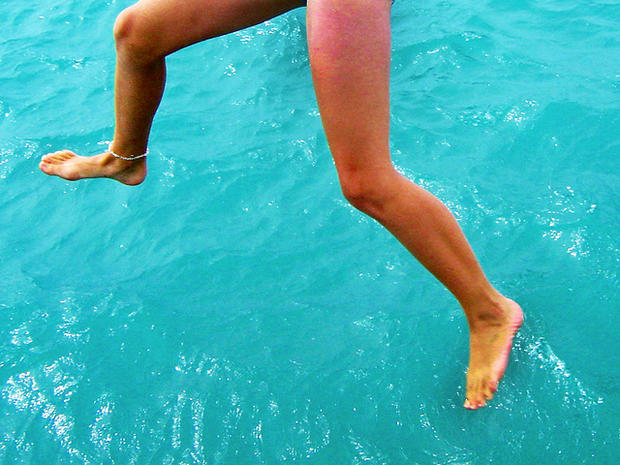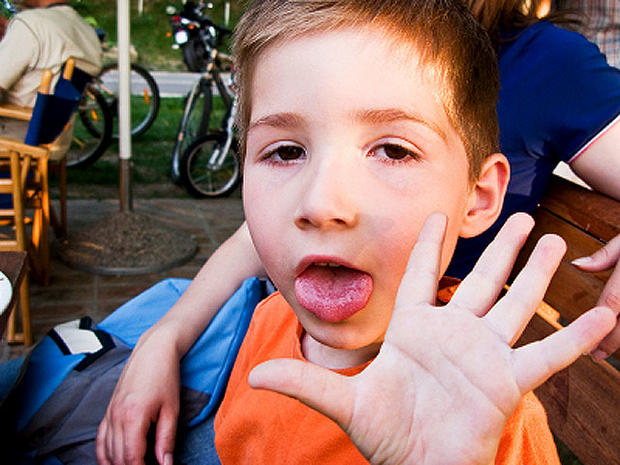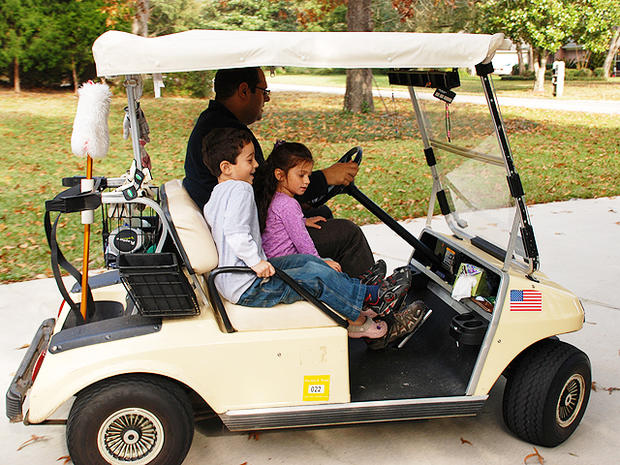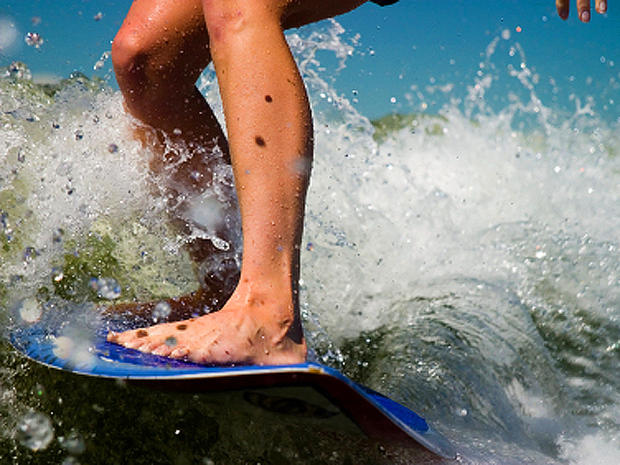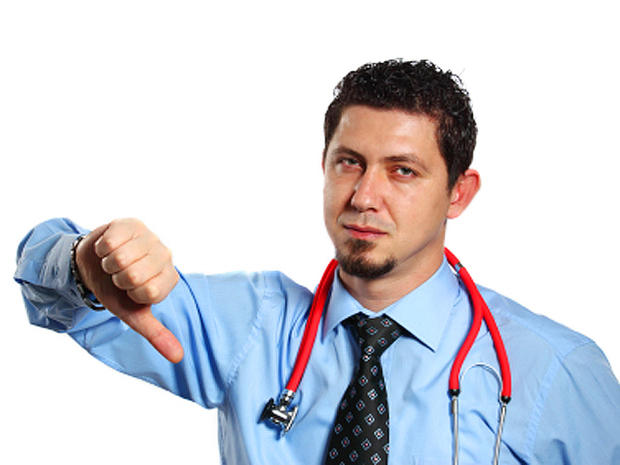12 ways you risk killing yourself this summer
Summer means fun in the sun, enjoying the great outdoors, and relaxing without a care in the world - right? Don't be so sure. With greater freedom comes greater responsibility, and many typical summertime activities come with their share of - often fatal - risks. Keep clicking to see 12 ways you might risk killing yourself this summer (and to learn how not to)...
Fireworks
A Fourth of July celebration is incomplete without fireworks - a dazzling yet dangerous production. According to the U.S. Consumer Product Safety Commission, three deaths and around 8,600 injuries occurred because of fireworks in 2010. Forty percent of those injured were children younger than 15.
So should Americans nix firework celebrations? Of course not - but public safety groups such as Prevent Blindness America recommend leaving the displays up to licensed operators. If you really want to do it yourself, just be smart about it - always operate outdoors and with a bucket of water or a hose nearby.
Heat-related illnesses
High temperatures mean high odds for experiencing heat-related illnesses like heat cramps, heat exhaustion, and heat stroke. According to the Children's Hospital of Pittsburgh, heat-related illnesses are a life-threatening emergency and require immediate medical attention.
If you feel cramps, have a fever, headache and weakness, and nausea, you are probably experiencing heat cramps or heat exhaustion. Heat stroke includes all of those symptoms plus a rapid heart rate, fatigue and, confusion - and it's potentially fatal. Experiencing any of these signs? Move to a cool place, drink plenty of fluids and fan the skin.
Golf cart head injuries
Are golf carts a safe, leisurely way to travel? Studies say no. According to the National Electronic Injury Surveillance system, golf cart-related injuries jumped 130 percent from 1990 to 2006, HealthDay reported. Another study by Georgia Health Sciences University found that more than two-thirds of people treated for golf cart-related injuries had suffered significant head injuries, and 60 percent of these injuries occurred in children.
Studies showed that golf cart riders and passengers rarely wear helmets or other protective gear, and the golf carts themselves typically lack doors and safety features and are less stable than cars - leading to sudden rollovers and ejections. Common sense is key when using golf carts. And never leave children unsupervised.
Water activities
Planning to hit the waves this summer? Summer swimmers face some major risks, especially if they're under the influence. According to the National Institute on Alcohol Abuse and Alcoholism, alcohol is involved in half of all water recreation-related deaths of teens and adults. Alcohol impairs not only motor skills during these sports, but also judgment - swimmers will swim too far, divers will dive in shallow waters, and surfers will catch dangerous waves.
Alcohol may be involved in up to 60 percent of boating deaths, the NIAAA said in a news release - a boat operator with a blood alcohol concentration greater than 0.1 percent is 16 times more likely to be killed in a boating accident than someone with a zero blood alcohol level.
Water park illnesses
The chlorine in the water that turns your hair green means the pool is clean, right? Wrong. Contrary to popular belief, chlorine does not kill all germs instantly, says the CDC. Many germs take days for chlorine to kill them - and swallowing just a little of dirty water can make you sick.
According to a poll conducted by the University of Michigan C.S. Mott Children's Hospital, more than 10,000 people in the U.S. get sick every year from infections picked up at water parks. These illnesses are spread by swallowing or breathing in mists of contaminated water, or by chemicals in the water that evaporate and cause indoor air quality problems. Recreational water illnesses result in infections that can strike the skin, ears, respiratory system, eyes, and nervous system - though the most commonly reported problem is diarrhea.
How can water park illnesses be prevented? Always shower before entering a water park, and don't swallow any water.
Lightning strikes
Warm weather doesn't always encourage time outdoors - thunderstorms occur more often in the summer than in any other season, increasing the odds of being hit by lightning. According to the American College of Emergency Physicians (ACEP), lightning kills 55 people in the U.S. each year and seriously injures hundreds more.
Luckily, common sense is all it takes to reduce your risk of being hit by lightning. ACEP recommends staying inside, keeping away from electrical appliances, avoiding water and metal objects, and waiting 30 minutes from the last observed lightning flash before resuming outdoor activities.
Driving under the influence
Summertime often equals party time - but drinking even a single glass of beer or wine can raise blood-alcohol concentrations enough to risk being seriously injured or dying in a crash, a recent study in the journal Addiction discovered. Every day, almost 30 people in the U.S. die in car crashes that involve an alcohol-impaired driver - that's one death every 48 minutes. There are more alcohol-related crashes on Fourth of July than any other holiday.
The solution is simple - don't drink and drive.
Grilling
Warm weather brings grilling season into full swing - but it also causes harmful bacteria to multiply faster, making grilling a risk for food-borne illness. How can you enjoy a summer cookout without getting sick? FoodSafety.gov says to marinate your meat in the refrigerator, not on the counter - and don't ever baste food with marinade that was used on raw meat. Most importantly, use a food thermometer to make sure your food is cooked thoroughly.
Tanning
It may look like a 'healthy glow' - but a tan is far from healthy. "Any tan is a sign of skin damage," Sharon Miller, a UV radiation and tanning expert from the FDA, said in a written statement. "A tan is the skin's reaction to exposure to UV rays," says Miller. "Over time, this damage will lead to prematurely aged skin and, in some cases, skin cancer."
Exposure to UV radiation increases the risk of developing melanoma, the deadliest form of skin cancer, which is also linked to severe sunburns.
Going to a teaching hospital
Can a summer trip to the hospital put a patient in harm's way? Apparently it can, according to a new study in the July 18th issue of Annals of Internal Medicine. The authors report that in July, more patients die - or receive worse quality care - in the form of unnecessary tests, or longer waits and surgery times. Dubbed the "July effect," the authors attribute this added risk to turnover at teaching hospitals, where experienced residents leave and are replaced with "newbie" residents.
